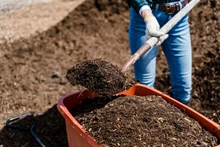
World Kidney Day is celebrated annually on the second Thursday of March to increase public awareness of the significance of kidney health and the effects of kidney diseases. As we commemorate this day, let's explore some lesser-known kidney facts that emphasize the vital role kidneys play in our bodies.
1. Size Doesn’t Matter: While kidneys may not be the largest organ in the body, their function is vital for maintaining overall health. These bean-shaped organs, about the size of a fist, filter approximately 200 liters of blood daily, removing waste products and excess fluids to produce urine.
2. Regulating Blood Pressure: Beyond filtering waste, kidneys play a pivotal role in regulating blood pressure. They accomplish this by releasing hormones that help control blood pressure levels, ensuring that blood vessels remain at the optimal size for efficient blood flow.
3. Bone Health: Kidneys are involved in maintaining healthy bones by producing an active form of vitamin D. This vitamin helps absorb calcium, essential for bone strength. Kidney dysfunction can lead to weakened bones and an increased risk of fractures.
4. The Silent Killer: Chronic Kidney disease (CKD) is often referred to as the "silent killer" because symptoms may not appear until the condition has progressed to an advanced stage. Early detection through routine screenings is crucial, as CKD can lead to kidney failure if left untreated.
5. A Lifesaving Filter: Dialysis serves as a lifeline for individuals with kidney failure. This artificial process mimics the kidney’s function, filtering waste and excess fluids from the blood. However, kidney transplantation remains the most effective treatment for end-stage kidney disease, offering patients a chance at a better quality of life.
6. Kidney Stones: Kidney stones are hard deposits formed from minerals and salts that can accumulate in the kidneys. While small stones may pass unnoticed, larger ones can cause excruciating pain as they travel through the urinary tract. Adequate hydration and dietary modifications can help prevent their formation.
7. Double Trouble of Diabetes and Hypertension: Diabetes and hypertension are leading causes of kidney disease. High blood sugar levels in diabetes and prolonged high blood pressure can damage the delicate blood vessels in the kidneys, impairing their function over time.
8. One Kidney, One Life: Living kidney donation is possible, as the body can function adequately with only one kidney. This altruistic act of donating a kidney can save the life of someone with kidney failure, highlighting the resilience and generosity of the human spirit.
9. Global Burden of Kidney Disease: Kidney disease affects millions of people worldwide and is associated with significant morbidity and mortality. Chronic kidney disease can occur at any age and is accelerated by a number of risk factors, affecting 1 in 10 persons globally.
10. Kidney Health Begins with You: Lifestyle choices significantly impact kidney health. Maintaining a balanced diet, staying hydrated, exercising regularly, and avoiding excessive alcohol consumption and smoking can help protect the kidneys from damage.
On this World Kidney Day, let us pledge to prioritize kidney health, spread awareness about kidney diseases, and support initiatives aimed at improving access to kidney care worldwide.










